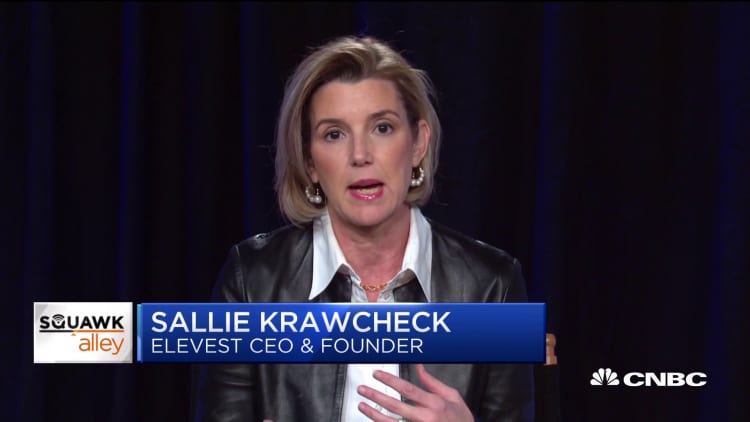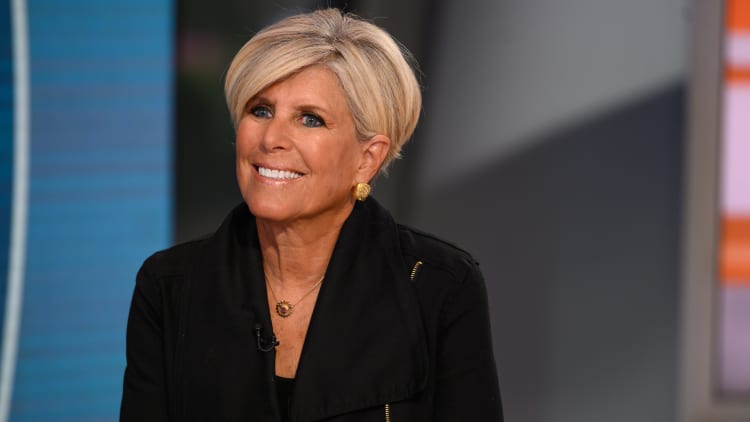When it comes to finances, it is women who will take the biggest hit from the coronavirus pandemic, according to a new report by PayScale.
With many schools closed, women are the ones who tend to take time away from work to care for their children, as well as elderly parents or family members who are at risk or confined.
When they seek to return to work, they'll receive an offer that is 7% less than a candidate who is currently employed when applying for the same position, PayScale's 2020 State of the Gender Pay Gap report said.
"The coronavirus pandemic has really exposed these cultural faults with our economic system," said Sudarshan Sampath, PayScale's director of research.
"Women are over-represented in the low-paid service economy jobs that are really getting slammed right now with layoffs,"Emily MartinVice President of education and workplace justice at the National Women's Law Center.
For those women returning to the workforce, "there is a strong likelihood they will not get rehired or they'll come back on reduced terms," he said.
More from Invest in You:
Suze Orman: How make smart money moves during the coronavirus crisis
Planning in the time of coronavirus means thinking about 'what-ifs'
How a gift certificate is helping small businesses crushed by the coronavirus
Even if women aren't taking time away to help out their family, they may have lost their job due to business shutdowns caused by COVID-19.
"Women are over-represented in the low-paid service economy jobs that are really getting slammed right now with layoffs," said Emily Martin, vice president of education and workplace justice at the National Women's Law Center.
They are less able to weather that job loss without real harm because they are typically paid less than men in the same occupation.
"That means hundreds of thousands of dollars lost in the wage gap that is not available as a nest egg to families in this time of crisis," Martin pointed out.

Taking time away from work has long been a contributing factor to the gender wage gap. Women are now earning 81 cents for every $1 earned by a man, according to PayScale. That is the ratio of median earnings of all women to all men.
When looking at the controlled pay gap — the disparity in pay for men and women doing the same work — women earned 98 cents to the men's dollar. That equates to women earning $80,000 less for doing the same work as men over a 40-year career, according to the report.
Yet for some of those female workers most at risk during this pandemic, the wage gap is larger than 98 cents to a dollar. Female elementary school teachers make 92 cents to men's $1 and women doctors make 94 cents. Female registered nurses make 98 cents.
"We are seeing the critical role of the women working in these occupations in this moment of crisis," Martin said.
"It really should be a call to action to ensure that they are paid decently and fairly and equitably."
Despite the disparity in pay, the wage gap has been slowly narrowing.
Last year women earned 79 cents to every man's dollar, compared to 81 cents for 2020, according to PayScale. In 2018 it was 78 cents.
Payscale's Sampath hopes that the current situation doesn't set women back.
"If we don't take a proactive stance as to how women are going to fare differently than men, we may reverse this trend," Sampath said.
"We could be back to where we started."

SIGN UP: Money 101 is an 8-week learning course to financial freedom, delivered weekly to your inbox.
CHECK OUT: Clean your phone at least once a day, says infectious disease specialist — here's how via Grow with Acorns+CNBC.
Disclosure: NBCUniversal and Comcast Ventures are investors in Acorns.






